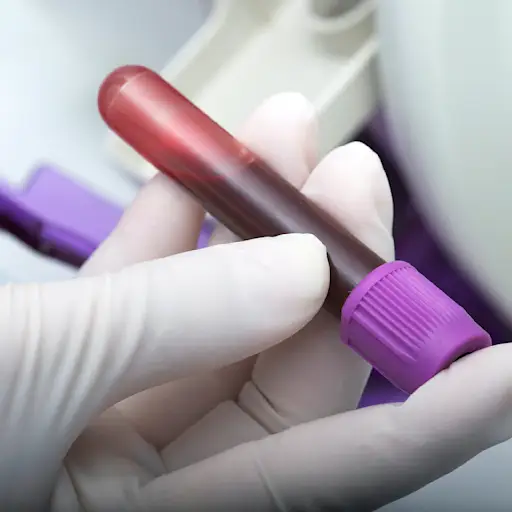8 Ways to Live Longer and Better With Diabetes

In 2020, theEuropean Association for the Study of Diabetes presented data suggesting that, on average, someone with type 2 diabetes will live nearly two years less and those with type 1 diabetes will live almost eight years less than individuals without these conditions. How much diabetes affects life expectancy depends on many things, including the age when you’ve been diagnosed, how long you’ve had diabetes, how well diabetes is managed, and whether you have a healthy lifestyle. Effectively managing diabetes can allow people to live as long as and have as good a quality of life as those who are healthy and free from diabetes. Here’s what you should know.

Diabetes Can Progress
“Diabetes can cause many complications,” says Betul Hatipoglu, M.D., professor of medicine at Case Western Reserve University School of Medicine in Cleveland, OH. It may affect different body parts if it’s not diagnosed early and treated appropriately, including eye damage (even blindness) and kidney damage. It may also affect the nervous system, resulting in numbness in the legs, and cause skin ulcers that don’t heal. It could even lead to amputations. In addition, “People with diabetes are at a higher risk for stroke and heart attacks,” says Dr. Hatipoglu.

Preventing Diabetes Progression
If you have diabetes, there is a lot you can do to prevent progression of this disease. Today, we are very fortunate to have the treatments and prevention tools, says Dr. Hatipoglu. What’s crucial is maintaining a healthy lifestyle and getting appropriate medical care. For example, we know if blood sugar, blood pressure, and cholesterol are controlled with specific medications, then a large majority of these complications will be managed and prevented, adds Dr. Hatipoglu. Consistent self-care can have a dramatic effect on the course of this disease. Start with these eight strategies for a better life with diabetes.

Monitor Blood Sugar
“We know that chronic exposure to high blood glucose [blood sugar] is damaging to the [blood] vessels and causes complications,” says Celeste Thomas, M.D., assistant professor of medicine in the department of endocrinology, diabetes, and metabolism at the University of Chicago. Of course, you can’t protect yourself from complications if you don’t even know your blood sugar levels and what the target level is, adds Dr. Thomas. Monitoring your blood sugar helps you find out if you are responding to therapy. But “how often to monitor [your blood sugar] depends on the medicines used,” says Dr. Hatipoglu.

Eat a Healthy Diet
“I recommend [eating] a Mediterranean diet with complex carbohydrates, while minimizing saturated fats and simple or added sugar beverages,” says Dr. Hatipoglu. That means eating a diet rich in vegetables and whole grains, relying on olive oil rather than butter, eating more fish instead of red meats, and choosing low- or nonfat dairy rather than whole milk. Dr. Thomas recommends avoiding sugar- or high-fructose-sweetened beverages, including regular sodas and sweet teas. Eating a diet heavy in saturated fats, sugar, and salt not only increases the progression of diabetes but also boosts the likelihood of developing cardiovascular, kidney, neurological, and eye diseases.

保持健康的体重
According to Dr. Hatipoglu, healthy lifestyles resulting in weight loss help slow or curtail the progression of diabetes and the complications of this disease if you are overweight or obese. There is a strong link between excessive weight gain and increased insulin resistance. (With insulin resistance, your cells don’t respond well to insulin, resulting in higher blood sugar levels.) “For people with type 2 diabetes and a BMI of 25+, a five percent weight loss delays the progression of diabetes and preserves beta cells [in the pancreas] that produce insulin,” says Megan Wolf, RDN, a dietitian and diabetes care and education specialist at Cleveland Clinic in Ohio.

Check Your Blood Pressure
We know that diabetes increases the risk for a variety of different diseases, including kidney disease and cardiovascular disease. “Similarly, long-standing hypertension (elevated blood pressure) increases the risk of developing kidney disease and cardiovascular disease,” adds Jacob Kohlenberg, M.D., assistant professor of diabetes, endocrinology, and metabolism at the University of Minnesota Medical School in Minneapolis, MN. That’s why it’s important to regularly monitor your blood pressure. This can “lead to the detection of hypertension, and treatment can be started to lower the blood pressure and reduce the risk of [these] hypertension-associated complications,” says Dr. Kohlenberg.

经常锻炼
“Regular physical activity is vital to improving all facets of long-term health,” says Dr. Kohlenberg. It’s linked with a reduced risk of cardiovascular disease and death, hypertension, and a variety of cancers, to name a few health conditions. “Specifically, in regard to diabetes, physical activity lowers glucose [blood sugar] and improves insulin action,” adds Dr. Kohlenberg. Furthermore, along with a healthy diet, aerobic and resistance exercise (a.k.a. weight training) can promote weight loss, says Wolf. Choose an activity you enjoy, whether it’s brisk walking, cycling, or swimming and try to exercise 30 minutes every day, five days a week, as per the Surgeon General’s recommendation of getting at least 150 minutes of moderately intense exercise a week.

Check Your Cholesterol Levels
糖尿病可以对胆固醇(脂质)水平产生重大(阴性)的影响,提高“坏”LDL胆固醇,降低“良好”HDL胆固醇的水平。这种情况增加了可能导致心脏病或中风的堵塞动脉(动脉粥样硬化)的风险。您的医生将讨论您的胆固醇数量应该是什么以及您应该如何进行胆固醇水平的频率。通常,LDL应小于100mg / dL,HDL大于50mg / dl的女性和男性为40mg / dl。尽管如此,美国糖尿病协会(ADA)建议大多数每个成年人的他汀类药物用糖尿病。

Quit Smoking
“Cigarette smoking is currently the leading preventable cause of death and has many negative health consequences including, but not limited to, an increased risk to develop type 2 diabetes and cardiovascular disease,” says Dr. Kohlenberg. Scientists have found that smoking increases the risk of insulin resistance so that blood sugar levels rise. Quitting smoking can improve how the body uses insulin. In addition, smoking cessation has significant health benefits, including increased lifespan, reduced risk of heart attack, stroke and cancer. Therefore, “smoking cessation is critical for all patients, particularly those with diabetes,” says Dr. Kohlenberg.

Have Your Eyes and Feet Checked
糖尿病会增加血管损伤的风险the back of the eye (retina), referred to as diabetic retinopathy that can cause blindness. It also narrows the blood vessels in the legs, thereby impairing the ability of wounds to heal, and damages the nerves of the leg and feet (peripheral neuropathy), resulting in numbness. “Patients with diabetes should have an eye exam once yearly (or more frequently if recommended by their provider) to monitor for diabetic retinopathy,” says Dr. Kohlenberg. In addition, people with diabetes should have their feet examined at least yearly to monitor for neuropathy, the development of peripheral vascular disease, and ulcerations.
饮食和糖尿病:Medical Principles and Practice. (2021.) “Management of Type 2 Diabetes: Current Strategies, Unfocussed Aspects, Challenges, and Alternatives.”https://www.karger.com/Article/Fulltext/511002
A1c testing:Diabetes Care. (2019.) “Changes in Screening Practices for Prediabetes and Diabetes Since the Recommendation for Hemoglobin A1c Testing.”https://care.diabetesjournals.org/content/archive/42/4/576/1.abstract
Exercise and Diabetes:Sports Medicine. (2019.) “Resources to Guide Exercise Specialists Managing Adults with Diabetes.”https://sportsmedicine-open.springeropen.com/articles/10.1186/s40798-019-0192-1
Jeanine Baroneis a scientist and journalist with an eclectic background. She’s a nutritionist and exercise physiologist who regularly writes about travel, health, fitness, and food for numerous top-tier publications. Jeanine enjoys active travel, especially long-distance cycling and cross-country skiing.

